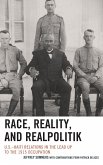In this concise interpretation of Wilson's Russian policy, Schild challenges the belief that Wilson's response to the 1917 October Revolution was exclusively ideological. Contrary to the belief that when Wilson sent American troops to intervene in 1918, his goal was to establish a democratic order in Russia, this book shows that his actions were more pragmatic. Wilson's belief in the superiority of liberalism over totalitarianism was so strong that he expected democratic forces in Russia to take power without outside aid. At the Paris Peace Conference, he rejected suggestions for an anti-Soviet crusade. His July 1918 decision to intervene was not a part of Wilson's ideology. It was based on an effort to maintain unity with Britain and France during the final phase of World War I. Wilson did, indeed, have a liberal anti-Bolshevik agenda. However, his belief in the superiority of liberalism over totalitarianism was so strong that he expected democratic forces in Russia to take power without any outside aid. At the Paris Peace Conference, he rejected all suggestions for a Western anti-Soviet crusade or for a division of Russia. His 1918 decision to intervene was not part of Wilson's ideological confrontation with the Bolsheviks. It was based on an effort to maintain unity with the British and French governments during the final phase of World War I. Wilson's Russian policy, the author concludes, was determined both by his ideological anti-Bolshevism and pragmatic demands for alliance cohesion.
Hinweis: Dieser Artikel kann nur an eine deutsche Lieferadresse ausgeliefert werden.
Hinweis: Dieser Artikel kann nur an eine deutsche Lieferadresse ausgeliefert werden.








